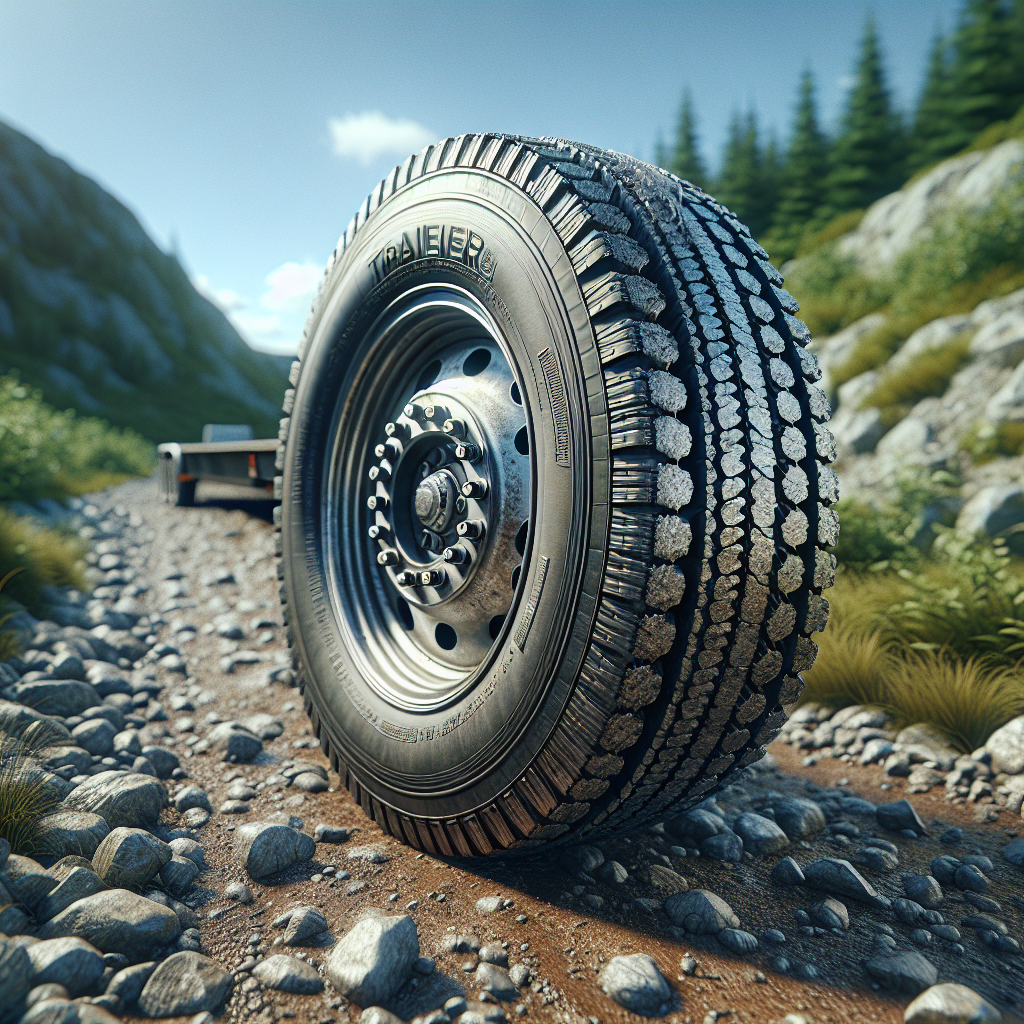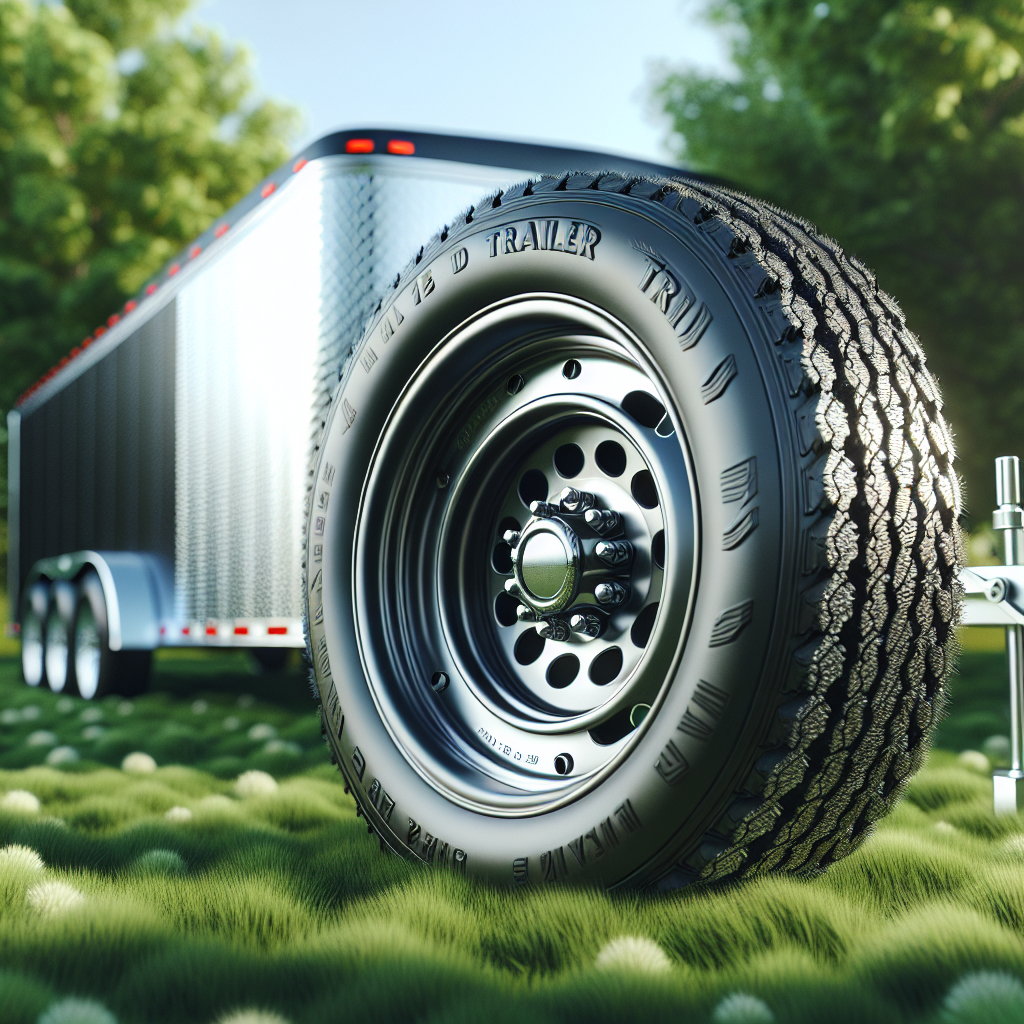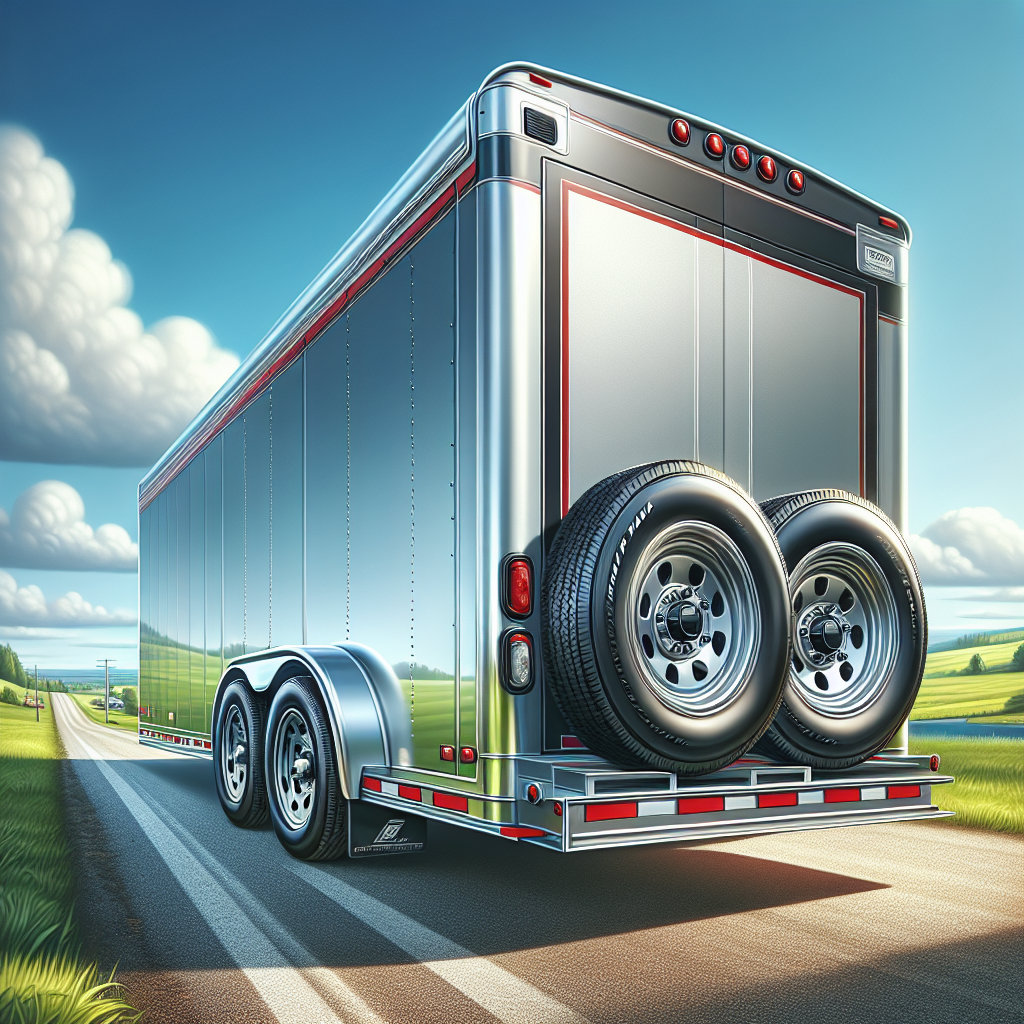

Maintaining the correct tire pressure on your trailer is not just about ensuring a smooth ride; it is a critical aspect of safety and efficiency on the road. Under-inflated or over-inflated tires can lead to a multitude of issues, including decreased fuel efficiency, uneven tire wear, and, most importantly, increased risk of tire blowouts.
When tires are properly inflated, they provide optimal traction, handling, and braking performance. Conversely, incorrect pressure can severely hinder these functions, leading to dangerous driving conditions. Here are a few key reasons why understanding and checking your trailer tire pressure is essential:
- Safety: Proper tire pressure reduces the likelihood of blowouts and accidents.
- Fuel Efficiency: Correctly inflated tires can improve fuel economy by ensuring that the engine doesn't work harder than it needs to.
- Tire Longevity: Maintaining the right pressure extends the life of your tires, saving you money in the long run.
- Load Distribution: Proper inflation helps distribute the load evenly across the tires, preventing premature wear.
Regularly checking your tire pressure should become a routine part of your trailer maintenance. Not only does it enhance safety, but it also boosts overall performance. Tow with peace of mind, knowing that trailerwatchdog is standing guard. Visit trailerwatchdog.com to learn more about our trailer monitoring solutions!
Tools Needed for Checking Tire Pressure
To accurately check your trailer tire pressure, you will need a few essential tools that ensure precision and reliability. Having the right equipment not only simplifies the process but also enhances safety by providing accurate readings. Here’s a list of the tools you’ll need:
- Tire Pressure Gauge: This is the most critical tool. A digital or analog tire pressure gauge will provide you with an accurate measurement of your tire pressure. Digital gauges often offer more precise readings.
- Air Compressor: An air compressor is necessary for inflating your tires to the recommended pressure. Some portable models are convenient for on-the-go adjustments.
- Valve Stem Tool: This tool can help in removing and installing valve cores, which may be necessary if you need to replace them.
- Safety Gear: While not directly related to checking tire pressure, wearing safety glasses and gloves is advisable to protect yourself during the process.
Before starting, it’s also important to have the manufacturer's recommended tire pressure specification handy. This information can usually be found on a sticker located on the trailer or in the owner's manual. By using these tools effectively, you can ensure that your trailer's tires are in optimal condition, ready for safe travels.
Step-by-Step Guide to Check Tire Pressure

Checking your trailer tire pressure is a straightforward process that can significantly enhance your safety on the road. Follow this step-by-step guide to ensure that your tires are properly inflated:
- Gather Your Tools: Before starting, make sure you have all the necessary tools, including a tire pressure gauge, air compressor, and valve stem tool.
- Check the Manufacturer’s Recommendations: Look at the trailer’s owner manual or the tire’s sidewall to find the recommended pressure level, usually measured in psi (pounds per square inch).
- Remove the Valve Cap: Gently unscrew the valve cap from the tire’s valve stem. Keep this cap in a safe place to avoid losing it.
- Use the Tire Pressure Gauge: Press the tire pressure gauge onto the valve stem quickly. Ensure that the gauge is seated properly to get an accurate reading. Note the psi displayed on the gauge.
- Inflate if Necessary: If the pressure is below the recommended level, use the air compressor to inflate the tire. Check the pressure again after a few seconds of filling.
- Repeat for All Tires: Don’t forget to check all tires on your trailer, including the spare tire if you have one.
- Replace the Valve Cap: Once all tires are checked and adjusted, securely replace the valve caps to protect the valve stem from dirt and debris.
By following these steps, you can ensure that your trailer tires are in optimal condition, which is crucial for safe towing and preventing unnecessary wear and tear.
Protect your trailer
Common Issues Caused by Low Tire Pressure

Maintaining the correct tire pressure in your trailer is essential for safe operation. When tire pressure is low, several common issues can arise, which may lead to dangerous situations on the road:
- Increased Tire Wear: Low tire pressure can cause uneven wear on the tire tread, leading to a shorter lifespan for the tires. This can result in needing premature replacements, increasing your overall costs.
- Poor Handling and Stability: Tires that are not properly inflated can negatively affect the handling of your trailer. This can lead to swaying or fishtailing, making it difficult to control the vehicle, especially during turns or when encountering strong winds.
- Reduced Fuel Efficiency: Under-inflated tires create more rolling resistance, which can cause your vehicle to work harder and consume more fuel. This inefficiency can lead to higher operating costs over time.
- Risk of a Blowout: Perhaps the most dangerous consequence of low tire pressure is the increased risk of a blowout. When tires are not adequately inflated, they can overheat and fail, leading to potential accidents.
- Heat Buildup: Low tire pressure can increase the heat generated within the tire due to excessive flexing, making them prone to damage and failure. Heat buildup can also affect other components of the trailer.
By being proactive about checking and maintaining proper tire pressure, you can significantly reduce the likelihood of these issues arising, ensuring a safer and more efficient towing experience.
Best Practices for Maintaining Optimal Tire Pressure

To ensure that your trailer remains safe and efficient on the road, it is crucial to adopt best practices for maintaining optimal tire pressure. Here are some effective strategies:
- Regular Inspections: Schedule regular inspections of your trailer's tire pressure. Check the tire pressure at least once a month and before any long trips. Use a reliable tire pressure gauge for accurate readings.
- Follow Manufacturer Guidelines: Always refer to the manufacturer’s recommendations for the correct tire pressure for your trailer. These specifications can typically be found on a sticker located on the trailer frame or in the owner's manual.
- Adjust for Load Conditions: Remember that tire pressure should be adjusted based on the load being carried. If your trailer is heavily loaded, you may need to increase the tire pressure to accommodate the added weight.
- Temperature Considerations: Tire pressure can fluctuate with temperature changes. Check tire pressure when the tires are cold, ideally before driving, to get the most accurate readings. As temperatures rise, tire pressure can increase, so adjust accordingly.
- Invest in Monitoring Systems: Consider installing a tire pressure monitoring system (TPMS) or monitoring solutions like TrailerWatchdog. These systems provide real-time data, alerting you to any significant pressure drops, which can prevent issues before they escalate.
By implementing these best practices, you can effectively maintain optimal tire pressure, enhancing the safety and performance of your trailer.
When to Seek Professional Help for Tire Issues

While regular maintenance can address many tire-related concerns, there are times when seeking professional help becomes essential. Recognizing these situations can save you from more significant issues down the road. Here are key indicators that it’s time to consult a tire professional:
- Persistent Pressure Loss: If you notice that your tire pressure continues to drop despite frequent checks and inflation, this could indicate a leak or damage that needs expert assessment.
- Visible Damage: Inspect your tires for any visible signs of damage such as cracks, bulges, or punctures. If you identify any of these issues, it's advisable to have a professional evaluate the tires further.
- Unusual Wear Patterns: Uneven tire wear can be a sign of misalignment or other mechanical issues. If your tires are wearing unevenly, consult a specialist to diagnose and correct the problem.
- Vibration or Noise: If you experience excessive vibration or noise while driving, it may indicate a tire imbalance or other serious tire issues. Getting a professional opinion can help identify the root cause.
- Regular Maintenance Needs: If you’re unsure about your tire maintenance routine or find it challenging to keep up with inspections, consider reaching out to a professional service for assistance and guidance.
Keeping your trailer tires in optimal condition is crucial for safety and performance. Don’t wait for a minor issue to escalate into a major problem. Tow with peace of mind, knowing that TrailerWatchdog is standing guard. Visit trailerwatchdog.com for more information on our trailer monitoring solutions.




